Vol 23, No. 2 Sponsored by:
We're on Facebook! 662 members and counting... Baton Rouge, LA -- Hello Mass Communication Division members! Hope you are having a wonderful summer! Thanks to all who submitted and reviewed NCA papers and proposals for the Mass Communication Division! Conference planning does not rest on the shoulders of one person and would be next to impossible without our membership. So, we appreciate your time and efforts. Special thanks to our research committee chair Dr. Tracy Worrell in leading the charge for a second year. Dr. Worrell, along with our vice chair Dr. Lissa Behm-Morwaritz, are responsible for the fantastic slate of papers and panels we have to look forward to at this year's conference in Salt Lake City. Also, thanks go to Dr. Nicole Martins, Dr. Jessica Gall-Myrick, and Dr. Lisa Glebatis Perks who also assisted with the review and planning processes. The conference program is available through NCA's Convention Central: https://ww4.aievolution.com/nca1801/index.cfm?do=cnt.page&pg=1011 The block of NCA convention hotel rooms is now available for reservation. Please note that there are a number of hotel options, given that the conference sessions themselves will be at the Salt Palace Convention Center. According to NCA's website, room rates range from $159 to $184 per night (plus applicable taxes and fees). All reservations are being handled through a third party, so reservations cannot be made by contacting the hotel properties directly. Please make your reservations by visiting: https://www.natcom.org/convention-events/convention-resources/hotel-travel We will continue to keep you updated on division events and happenings as we move toward our meeting in Salt Lake! Continue to read the Gatekeeper online, our MCD Facebook page, and Twitter using #ncamcd Also, be sure to share any news and announcements that would be of interest to the membership! Dr. Meghan S. Sanders Wishing you all happiness,
Editor's NotePocatello, ID -- Please enjoy reading through the summer issue of The Gatekeeper. Below you'll find a host of announcements about MCD, including award calls and officer nominations, as well as new job calls. We will be looking for a new publications editor, so if you'd be interested in taking over, please feel free to contact me! Further down you'll find this issue's Gatekeeper Scholar Chat with Dr. David Tewksbury from the University of Illinois at Urbana-Champaign. Since his work focuses on the news media, information, and democracy, our discussion was as engaging as it was timely. Please pass along any ideas for content for future issues of The Gatekeeper. Our next issue, in the fall, will preview the convention in Salt Lake City. All the Best,
<<back to top>> AnnouncementsCalls for AwardsNCA's Mass Communication Division Invites Nominations for Teaching, Service and Dissertation Awards (2018) University Park, IL -- The Mass Communication Division would like to announce a call for the teaching, service and dissertation awards. Please read and follow the links below. Teaching Award The MCD Teaching Award is designed to recognize excellence in teaching, using the term "teacher" in a broad sense. In order to be considered, the nominee must be a member of NCA and the MCD, must have taught for over ten years (post-graduate). Self-nomination is encouraged in addition to nominations by others. The nomination packet should include the Application for Candidate Nomination (completed online), the applicant's curriculum vitae, and three letters of recommendation (not to exceed two pages; one must be from a current or former student). Service Award The MCD Service Award is designed to recognize excellence in service, using the term "service" in a broad sense. In order to be considered, the nominee must be a member of NCA and the MCD, must have served the NCA and MCD in a number of capacities, and must have evidence of exemplary service to several of the following: NCA, MCD, their profession, their community, their department, and/or their college/university. Self-nomination is encouraged in addition to nominations by others. The nomination packet should include the Application for Candidate Nomination (completed online), the applicant's curriculum vitae, and three letters of recommendation (not to exceed two pages each). To be considered for the teaching or service awards, complete the following by Friday, September 21st, 2018:
Dissertation of the Year Award The Mass Communication Division of the National Communication Association will recognize the outstanding doctoral dissertation in the field of Mass Communication. Nominations should reflect the division's focus which seeks to enhance understanding of the structure, content, function, interpretation, and effects of our complex media environment. To be eligible for the award, a dissertation must have been officially completed (i.e., filed and defended) July 2016-June 2018. 1. A nomination letter speaking on the intellectual and academic merit of the dissertation 2. A 500-word (maximum) abstract of the dissertation. 3. The table of contents of the dissertation 4. One dissertation chapter considered to be representative of the manuscript. Please do not send complete dissertations. Send all nomination materials (in one PDF document) by Friday, August 31, 2018 to the Vice Chair Elect, David Rhea (drhea@govst.edu). Please include "NCA MCD Dissertation Award" in the subject line of your email. The award will be presented at NCA's Mass Communication Division Business Meeting at the November 2018 convention in Salt Lake City, Utah. For more information about the conference, please refer to the link: http://www.natcom.org/convention/ Mass Communication Division Call for NominationsColumbia, MO -- The Mass Communication Division of NCA is currently soliciting nominations for these leadership positions which will be voted on at the 2018 convention in Salt Lake City: Vice-Chair Officer Elect (4 year commitment) For more details on the responsibilities of each position, see the bylaws page on our website: http://ncamass.org/bylaws.shtml. Elections will take place at the 2018 MCD business meeting (specific location and time TBD). Please send nominations and questions to rilesj@missouri.edu before September 26, 2018. Self-nominations are welcome! Job AnnouncementsBaton Rouge, LA -- Louisiana State University seeks Assistant/Associate Professor of Public Relations in 2019; review of applications begins September 3 Santa Barbara, CA -- University of California Santa Barbara seeks Assistant Professor of Integroup Communication in 2019; applications due by September 15 https://www.facebook.com/photo.php?fbid=10113373680009934&set=gm.10156174412744892&type=3&ifg=1 Ithaca, NY -- Cornell University seeks to fill two tenure-track positions in Communication, one as an associate/full rank and then another at open rank, in 2019; review of applications begins October 1 https://academicjobsonline.org/ajo/jobs/11361 Kennesaw, GA -- Kennesaw State University seeks assistant professor of Journalism and Emerging Media in 2019; review of applications begin September 15 https://facultyjobs.kennesaw.edu/postings/5084 <<back to top>> Gatekeeper Scholar ChatDr. David Tewksbury
Among other distinctions in his academic career, Dr. Tewksbury earned the NCA Mass Communication Division's Teaching Award in 2010. In his free time, he admits to gardening "incessantly," adding that he "enjoy[s] pulling weeds, trying to get plants to survive." Though it was tempting to pursue this metaphor for an entire discussion on mass communication and democracy, this edition of Gatekeeper Scholarly Chat remained relatively straightforward, thankfully, and was conducted over Skype this summer. Gatekeeper: Your 2012 book, News on the Internet, seems to anticipate our media environment that came to a head with the 2016 election and now deep in the throes of endless news cycles prompted by the Trump administration. In the process of writing that book, were you anticipating change that was to come in news media and social networking, or do you see what has happened as an extension of what had already emerged? DT: Publishing always takes a few years for what you're writing to make it into print, and having co-written the book with Jason Rittenberg, who was in our PhD program, I was the old media guy and he was the new media guy. But in looking at the long-term trajectory, from traditional to today, I take the view things don't change much over time. People are people and information is information and changes are relatively incremental as you go along. Jason had the idea that "no, big stuff is happening." So as I was writing, I thought how we've always had discussions over what was real, but it was a bit more civilized. That change in tone makes a big difference. The fact that we are debating these concepts is not new, but Jason would say things are different in terms of who gets to speak. To channel him, it's not just academics or people in corporations and the legal profession; it's people over the kitchen table debating what is information and what is true. We're much further along than even he anticipated; everybody is now involved in everyday discussion about what is information. Gatekeeper: Do you feel that both media professionals as well as citizens are overwhelmed with information, though? Is there an opportunity for real dialogue given all the information we have, or is that a problem that always has to be managed? DT: I want to think the pendulum will swing back a little bit toward stability, but in the last year it's been about as chaotic as can be imagined. The outcome might be people become more withdrawn, as people have their intellectual antennae out and information may just become too overwhelming. The polarization stuff we talk about, with bubbles, may not be the answer. I'm reading and talking to people who are saying that they've been in a bubble and are ready to come out and see other sides. I see different reactions, but it's tough to know what's going on in media organizations like Facebook. They're really worried about their role as either common carriers or producers. That's a longstanding debate and they went into it as fighting to the death to be recognized as common carriers that cannot be regulated, but now I think they're taking more responsibility. And if anything is going to get us to a more stable place, it'll be those folks taking responsibility for their content. Again, though, that's the old media guy talking. But there are those who will say information always wants to be free, even bad information. Gatekeeper: It almost seems the challenge, then, is an ethical call for responsibility. DT: But they think so much about bottom line. They don't want to be regulated, and there's a lot of self-preservation because they don't want to be regulated in the long run. Gatekeeper: The perspective of tech companies and the Supreme Court, at least since the Citizens United decision in 2010, has been a preference for quantity over quality of discourse. That's how we ended up with "money equals speech," to my mind. The theory seems to be we need as much communication as possible, consequences be damned. DT: That's a nice parallel, but while people care about consequences, the folks running the tech industry would say, "That's not our job; let other parts of society deal with that." Gatekeeper: One of the points you've made in your work is that while it is positive people are more engaged as a result of the online world, we're dealing with so much fragmentation and polarization. So we now know all about echo chambers and silos. But how do we distinguish between international, national, and local contexts for information and dialogue? Community newspapers have taken such a hit, and it seems the Internet has never figured out how to foster local news. What, if any, distinctions can be made within geographic expanses of information? DT: Figuring out "local" has been difficult. It's like the politicians who quit in shame and say they're going to spend more time with their family. When newspapers die, they then say, "We're going to make a great local product." But then, like, what have you been doing all these years? We've seen this answer for a number of years now: "Let's do local really well." Whether it's civically funded or a charity, dying newspapers have talked about foregoing international news coverage. That has been a really common theme, but I never hear people talk about their great local media. So I'm not sure we've figured that out, and what takes place, unfortunately, is that national news takes up most of the attention. I say this is unfortunate because what is local is really, really important for civic life. Everyone obsesses over Trump and the international stuff when most of what really matters and affects our lives are what goes on at City Hall. But there are a lot of smart people who know we have to figure that out. Gatekeeper: You've published in the past on classic theories of mass communication, including agenda setting, framing, and priming. Given the convergence of mass and social media, I'm curious to what extent these foundational theories still hold up. Are they still important, or do we need a different approach? DT: The meta look at this is that these are all metaphors, ways to describe information and turn it in to something else. But it's important for us to think about it at the individual level because this is how we take information and concepts and turn them into explanations, which become reactions. That's basic foundational stuff, and it's always important to take that into account. On the other hand, on an operational level, things are changing. The concept of a media agenda gets harder to think about every day. My grad students will say, "There's too much going on for one agenda." But others will insist, "Of course there's an agenda." These different perspectives show we cannot agree on what a media orientation is anymore. That Twitter feed you're primed to: is that a bigger media agenda then the local newspaper you don't want to read anymore? Bottom line is at the individual level, these things still matter. On a larger, socio-political level, things are definitely changing. We have to figure out the conditions under which the media agenda still matters, and in what ways they don't -- or matters less. Gatekeeper: News coverage is so saturated it can be tough to tell. One thing that has gotten lost in the indictments issued against Russian intelligence services for their hacking of servers and email during the 2016 election was that when then-candidate Trump publicly called for Russia to look into Clinton emails, his very next line was: "I think you will be rewarded mightily by our press." The drip of hacked communications in the news throughout the election suggests a foreign adversary may have been aware of how American news functions. The crime is the hack itself, but the planted coverage speaks to something else about the mainstream press. DT: The chaos in which we will live has not prevented some of these folks from figuring out how to get their way. Gatekeeper: I noticed you've been publishing a bit on health issues lately, including framing and cancer. What drew you to that? DT: My grad students have been very interested in it, but framing works in health as much as a politics. That translates into how we think about people. Usually it's policy outcomes, but framing is about how we think about individuals who suffer. So with cancer, spending too much time in the sun prompts a really different reaction than when someone is considered to have been born with genes that led to it. What I like about the health process is framing can make it more about people than government and policy. Gatekeeper: Do you anticipate switching to more health phenomena or will you stick with politics because it's so rich with material? DT: We'll never cease to have political stuff to talk about, will we? My interest will continue in politics because that's the area where the connection is, between people and politicians, government elites, and corporations. Our job as academics is to say, here are some tools to be prepared. Gatekeeper: Do you have any words of encouragement for young scholars -- whether they are grad students or untenured faculty? Any new methods or areas of inquiry? DT: It's tough because you don't want to be the old guy telling others, "We get this wrong." But if there's one thing I would encourage, it'd be for media folks to spend more time talking to interpersonal and org comm scholars and getting their ideas. I'm as guilty of this as everyone else, and what showed me limitations to this was a couple of grad students. We did a social network analysis of the kind of media people use. We took what I thought was a rudimentary concept -- how much news do you consume -- but took an org comm perspective. It gave us a different way to think about fragmentation. But also, in media, we use the mass-comm understanding of interpersonal communication. My colleagues in interpersonal sometimes laugh at me about this, and in mass comm we have to understand that what we study is increasingly not about mass comm; it's about all aspects of communication. So we have to put our arms out, and they do, too, in order for us to use all the tools and theory available. The concepts are interchangeable, and we can bring it altogether. That's my plug for the future. Gatekeeper: Your research focuses on media consumption and selection, so I was wondering if you could share with us your media diet? That is, what information sources do you find accurate and useful? Old media, new media? Is there even a guilty pleasure of news you might indulge in? DT: I'm shamelessly old media. It's terrible. Believe it or not, I have print subscriptions to the local newspaper -- a relatively conservative one -- and The New York Times. I never watch television. I haven't watched TV news in 30 years, but do go to CNN.com. My guilty pleasure is Huffington Post -- it's like candy. Gatekeeper: I'm surprised sometimes when students or community members complain about bias and insist on asking for a completely objective news source. Well, I tell them, it was ever thus. The old newspaper pamphlets from the 1700s were always organs of opinion. We should want accurate news, but there is no perfect, unbiased source. DT: So what is their expectation of news? Gatekeeper: People insist they want objectivity, but it's important, at least for me, to see it as the method, not the outcome. It is important to question news -- even our mainstream outlets -- but not to the cynical extent we see today where nothing can be believed. Let me ask you, then, about pedagogy and teaching at the undergraduate level. Are there strategies that media educators should be using with the community or students for engaging the news with choice but not winding up in the stark fragmentation and polarization we so often see? DT: That's a good one. I start with the long view. There's always been the belief that news is argument -- when it started as a business, it became a product. So you have to deal with those facts that it is about making money and coherent arguments. Those are the basic things. Only in the last 100 years has news been about objectivity. It's a relatively new concept so it's wrong to think of news as purely objective, given the format. I think we have to open up our definition of information. I try to get people to think about evaluating information as the goal rather than seeking the perfect outlet because there isn't one. We shouldn't be hypercritical of being partisan. That's what sells, like yellow journalism 100 plus years ago. If we can lower expectations, we can deal with information in a more realistic fashion. Gatekeeper: Something I struggle with is whether the problem is the more opinion-based outlets, like Huffington Post -- who was co-founded by Andrew Breitbart, incidentally. For instance, I'm uncomfortable with blaming FOX News for everything because there will always be propaganda organs. I sometimes think the focus should be on CNN and the New York Times, making sure they are doing their job, and then making sure local news is doing their job. It feels odd saying propaganda is okay, but it's a real challenge identifying the problems we have. Do you feel the bigger concern is with the mainstream press, the propaganda outlets of opinion, or the sphere of social media? Or the convergent mess of all of these and the inability to distinguish them? DT: NPR just released a survey that the knowledge gaps between FOX and other outlets were more than just the partisan gaps, and that is really interesting. They were making the case that we have an information source gap and not a partisan one. Our problems are of our own making, then; we are not equipped to deal with the manipulation we get from all sides. We're not able to deal with all of it emotionally, like the tribalism stuff. We're not good at sorting through information. I'd be happy if FOX toned back a bit, but it's not just about them. We want the simplistic answer, and our inability to deal with complexity is a human problem. Gatekeeper: Doesn't that make democracy really hard to practice since it is supposed to be based on deliberation and information? DT: It's why I have no real advice for our country. We should have a strong democracy, but it's based on flawed assumptions with how we act. And that's a bummer. Gatekeeper: Thanks so much for your time today. Is there anything we haven't addressed that you think is important for the membership to consider? DT: I have no axe to grind. As time goes on, I continue to appreciate the work being done by NCA. And ICA, too. Those are the two organizations where I can interact with colleagues in other areas of communication. And the more time we can get together and spend being careful, smart critics of society -- which is what our job is --the more we can keep our sanity and become better. Thank you for doing what you're doing and keeping people connected. Gatekeeper: Thanks again. We appreciate your time in chatting with us. <<back to top>> NCA MCD OFFICERS
This site best viewed and navigated with Internet Explorer 7x or greater, and seems to work fine with Google Chrome and Mozilla Firefox. (c) 2018 NCA Mass Communication Division |
|||||||||||||||||||||||||||||||||
/20th_2.jpg)
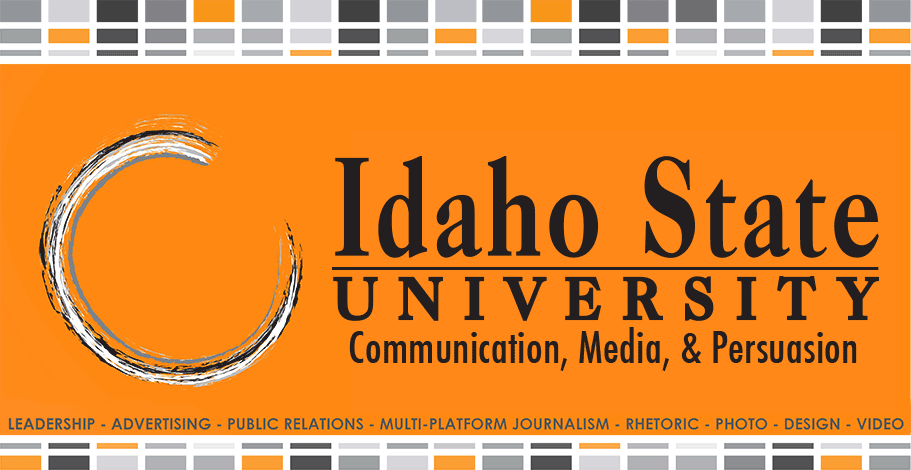

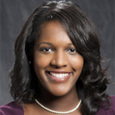
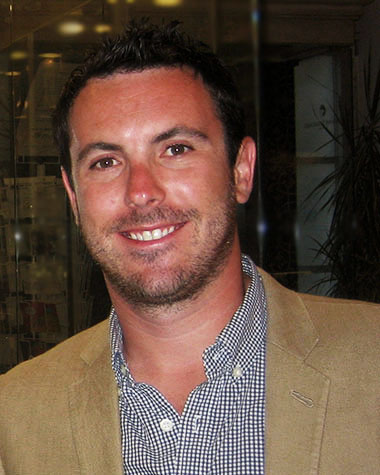 Dr. Zac Gershberg
Dr. Zac Gershberg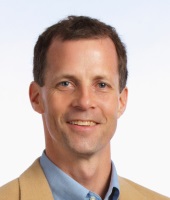
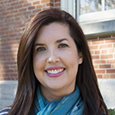
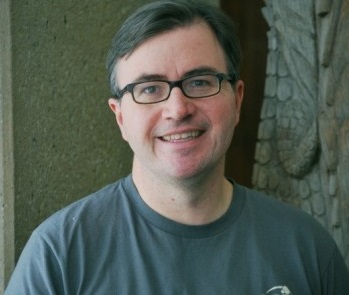 Vice Chair-Elect / Ad-Hoc Awards
Vice Chair-Elect / Ad-Hoc Awards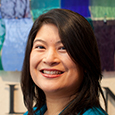
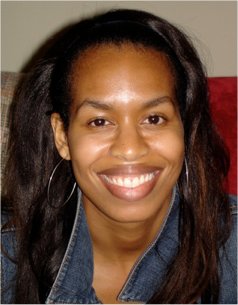 Secretary
Secretary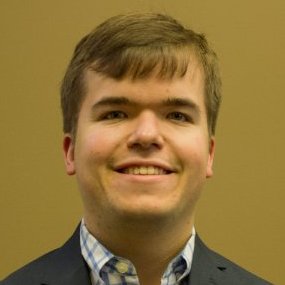 Graduate Student Rep.
Graduate Student Rep.
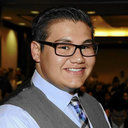 Graduate Student Rep. - Elect
Graduate Student Rep. - Elect
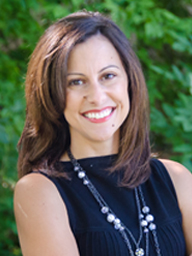 First Vice-Chair
First Vice-Chair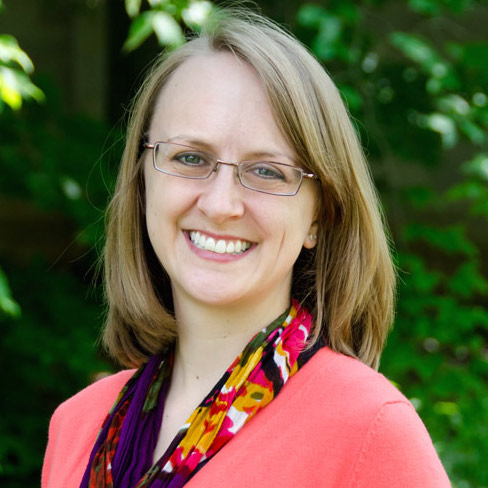 Second Vice-Chair
Second Vice-Chair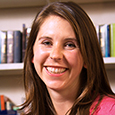 Second Vice-Chair - Elect
Second Vice-Chair - Elect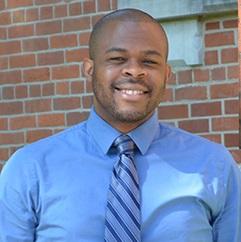 Committee Chair
Committee Chair 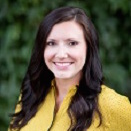 Chair-Elect
Chair-Elect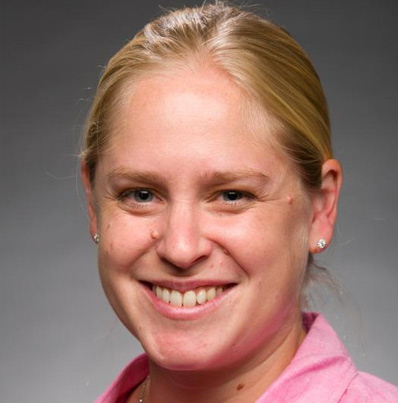 Nominations Committee
Nominations Committee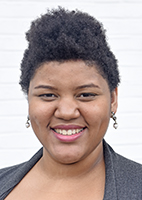 Nominations Committee - Elect
Nominations Committee - Elect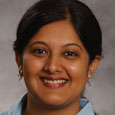 Representative to NCA Nominations Committee
Representative to NCA Nominations Committee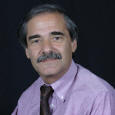
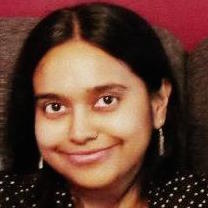 Legislative Assembly
Legislative Assembly